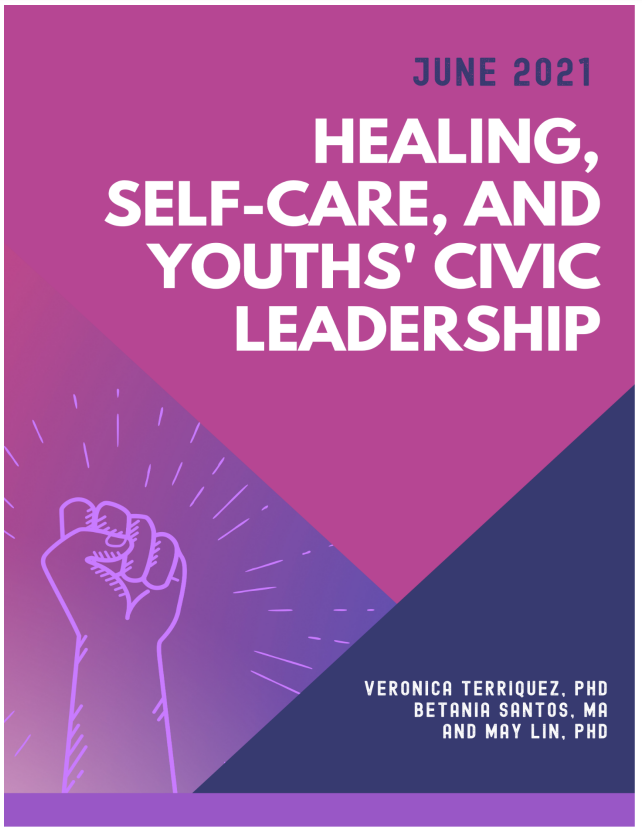
Healing, Self-Care, and Youths’ Civic Leadership
June 2021
By Veronica Terriquez PhD, Betania Santos, and May Lin
In the past decade, a growing number of youth organizing and leadership groups have engaged low-income youth of color to address social disparities through grassroots organizing, advocacy, and public education. Many youth organizing groups across the state have increasingly incorporated healing and self-care practices to promote the well-being of their members as they work toward positive community change. These self-care practices aim to address some of the emotional trauma, stress, and other challenges that contribute to poor mental health among young people of color.
Groups’ efforts often reflect a recognition of how social inequalities negatively impact mental health outcomes for young people, as well as a concern that engaging in grassroots organizing or other efforts to improve community conditions can actually exacerbate emotional stress. As such, organizations have sought to incorporate activities that alleviate negative mental health outcomes while at the same time empowering their members to create positive social change. Summarizing findings from surveys, focus groups, 180 in-depth interviews with youth leaders, and over three years of participant observations, this report shows how and to what extent TCE-supported youth organizations across California engage their members in a range of healing and self-care practices. It also explores how these healing practices are associated with an array of self-reported leadership, health, and other developmental outcomes.
Survey results demonstrate that TCE-supported youth organizations most commonly engage their members in healing or talking circles, with nearly half (47%) hosting such activities at least once a month and another 13% doing so less frequently. Implemented in various ways, healing circles invite members to share personal experiences in a safe space, receive affirmation from their peers, and build relationships and bonds within their organizations.



